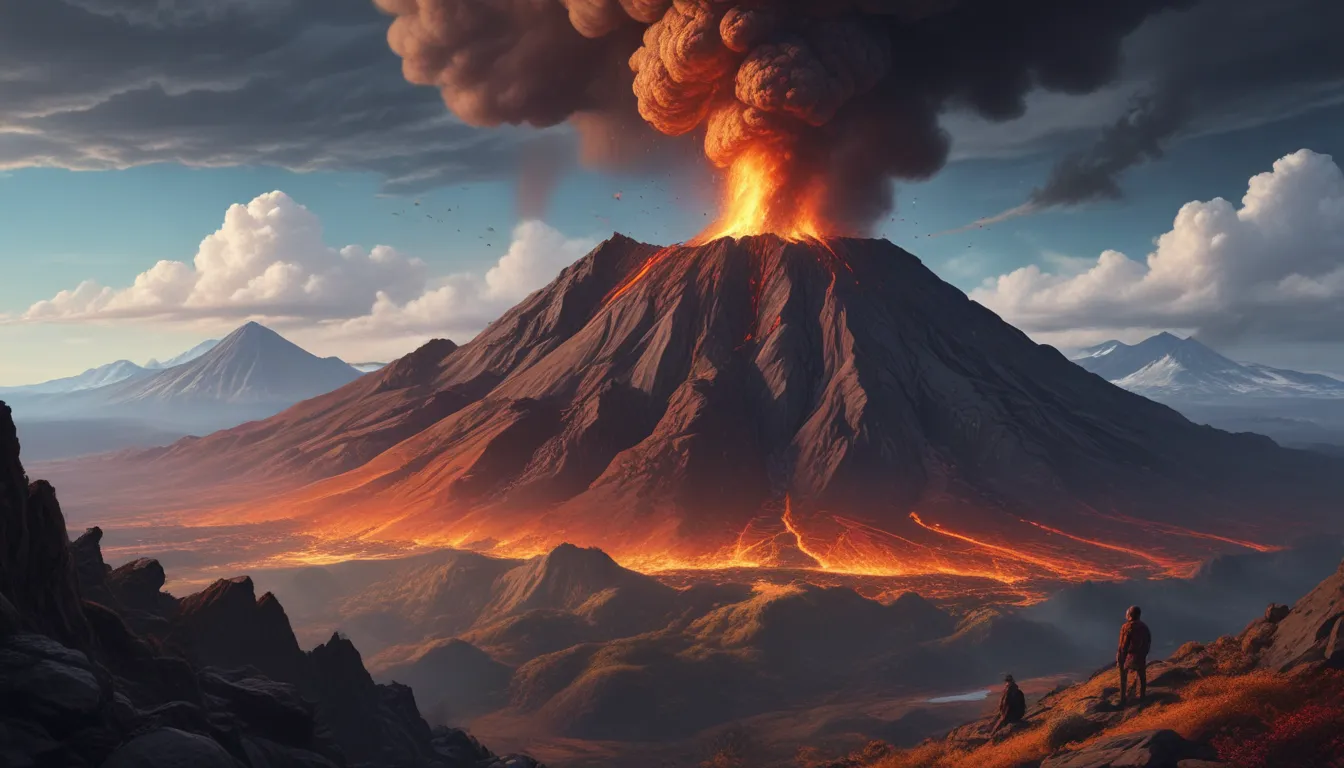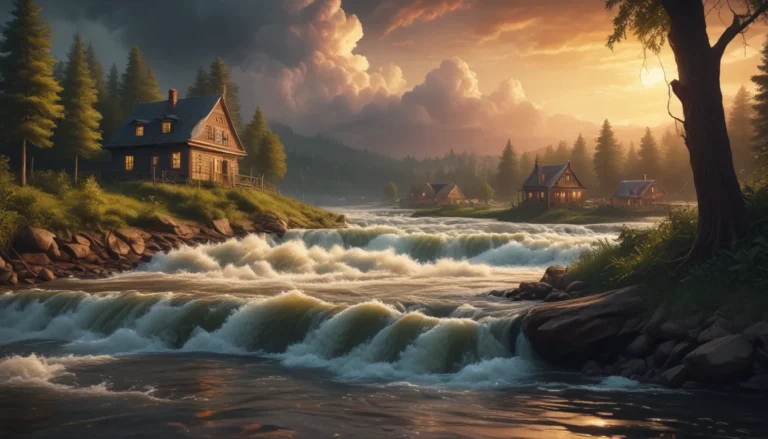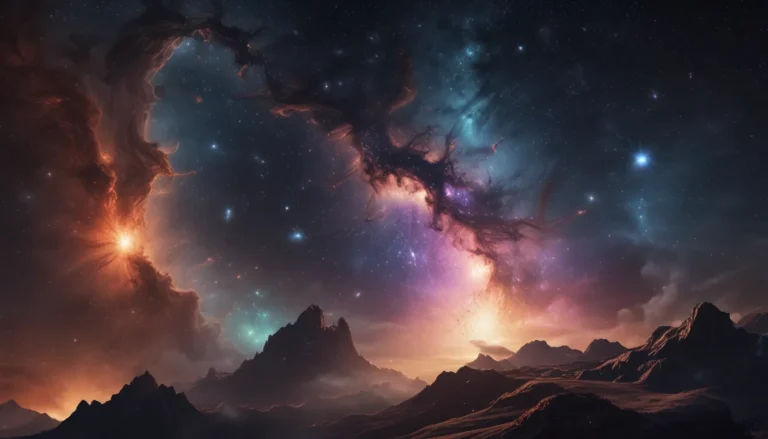The pictures we use in our articles might not show exactly what the words say. We choose these pictures to make you interested in reading more. The pictures work together with the words but don’t take their place. The words still tell you the important facts.
Are you ready to embark on a journey of discovery into the incredible world of volcanoes? These natural wonders have captivated humans for centuries with their raw power and beauty, shaping the Earth's landscape and impacting our planet's history and ecosystem. In this article, we will explore 12 fascinating facts about volcanoes that will enrich your understanding and pique your interest.
Unveiling the Forces Behind Volcanic Activity
- Volcanoes Form as a Result of Tectonic Activity: These majestic geological formations are created when tectonic plates collide or separate, allowing molten rock, known as magma, to rise to the surface and erupt as lava.
- Three Main Types of Volcanoes: Volcanoes can be categorized into shield volcanoes, composite volcanoes, and cinder cone volcanoes, each with distinct characteristics and eruptive behavior.
The Varied Intensity of Volcanic Eruptions
- Diverse Eruption Intensity: Volcanic eruptions can range from slow lava flows to explosive events that release massive amounts of ash, gases, and pyroclastic materials high into the atmosphere.
- Global Effects of Eruptions: Powerful volcanic eruptions can inject volcanic gases, ash, and aerosols into the Earth's atmosphere, leading to significant climate effects on a global scale.
Exploring the Ring of Fire and Its Volcanic Activity
- The Pacific Ring of Fire: This area in the Pacific Ocean is known for its intense seismic and volcanic activity, housing the majority of the world's active volcanoes and serving as a hotspot for geological research and monitoring.
- Creation of New Landforms: Volcanoes play a crucial role in forming new landforms such as volcanic islands, lava plateaus, and volcanic cones, transforming landscapes and contributing to diverse ecosystems.
Uncovering the Mysteries of Volcanic Ash and Lava Lakes
- Beneficial Qualities of Volcanic Ash: Despite its destructive potential, volcanic ash is rich in nutrients and enhances soil fertility, making volcanic soils highly productive for agriculture in certain regions.
- Rare Lava Lakes: Some volcanoes host permanent lava lakes in their craters, presenting a mesmerizing phenomenon where molten lava continuously churns and emits a radiant glow.
Unveiling the Cultural Significance of Volcanoes
- Influence on Mythologies and Cultures: Throughout history, volcanoes have been revered and feared by various cultures, often associated with powerful gods and goddesses, shaping narratives and beliefs worldwide.
- Triggering Natural Disasters: Volcanic eruptions can lead to secondary hazards such as landslides, tsunamis, and pyroclastic flows, posing additional threats to nearby communities and ecosystems.
Extracting Insights from Volcanic Studies
- Geological Insights: The study of volcanoes provides valuable insights into Earth's geological history, offering scientists a deeper understanding of the planet's geological processes and evolution.
- Continued Monitoring: Advancements in technology have enabled scientists to monitor volcanoes closely for signs of activity, providing timely warnings to at-risk populations and mitigating potential impacts of eruptions.
As we delve into the world of volcanoes, we begin to appreciate the power and beauty of these natural phenomena. From their ability to create new landforms and influence climates to their cultural significance and geological importance, volcanoes continue to intrigue scientists and ignite our sense of wonderment at the forces that shape our planet.
Embracing the Marvels of Volcanic Activity
Volcanoes are not only fascinating features of the Earth's landscape but also powerful agents that shape our planet's surface and provide insights into its history. Understanding the intricacies of volcanic activity is essential for scientists, geologists, and anyone curious about the dynamic processes of our planet.
Delve into the world of volcanoes, appreciate their beauty, and respect their potential hazards. By learning about the facts surrounding volcanoes, we can better prepare and respond to volcanic activities, minimizing their impact on human lives and the environment.
FAQs: Unveiling Common Queries About Volcanoes
- What is a volcano? A geological feature on the Earth's surface that allows molten rocks, ash, and gases to escape from the interior of our planet.
- How are volcanoes formed? Through weak spots or breaks in the Earth's crust, allowing magma from the mantle to rise to the surface and build up cone-shaped structures.
- Are all volcanoes active? No, some volcanoes are dormant or extinct, with varying levels of activity.
- Can volcanic eruptions be predicted? While advancements in monitoring have been made, accurately predicting eruptions remains challenging.
- Are volcanic eruptions dangerous? Yes, they can release ash, gases, and pyroclastic flows, posing significant threats to the environment and human life.
- How do volcanoes affect the environment? Volcanic eruptions can impact global temperatures and weather patterns, contributing to climate change.
- Are there benefits of volcanic activity? Yes, volcanic soils are fertile and support agricultural productivity, while eruptions can create new landforms and attract tourists.
- Can volcanoes be found underwater? Yes, underwater volcanoes, known as submarine volcanoes or seamounts, play a role in forming new islands and expanding landmasses.
Our commitment to delivering accurate and engaging content ensures that each fact shared here is both fascinating and trustworthy. Trust in our dedication to quality as we continue to explore the wonders of the natural world and deepen our understanding of the forces that shape our planet.






